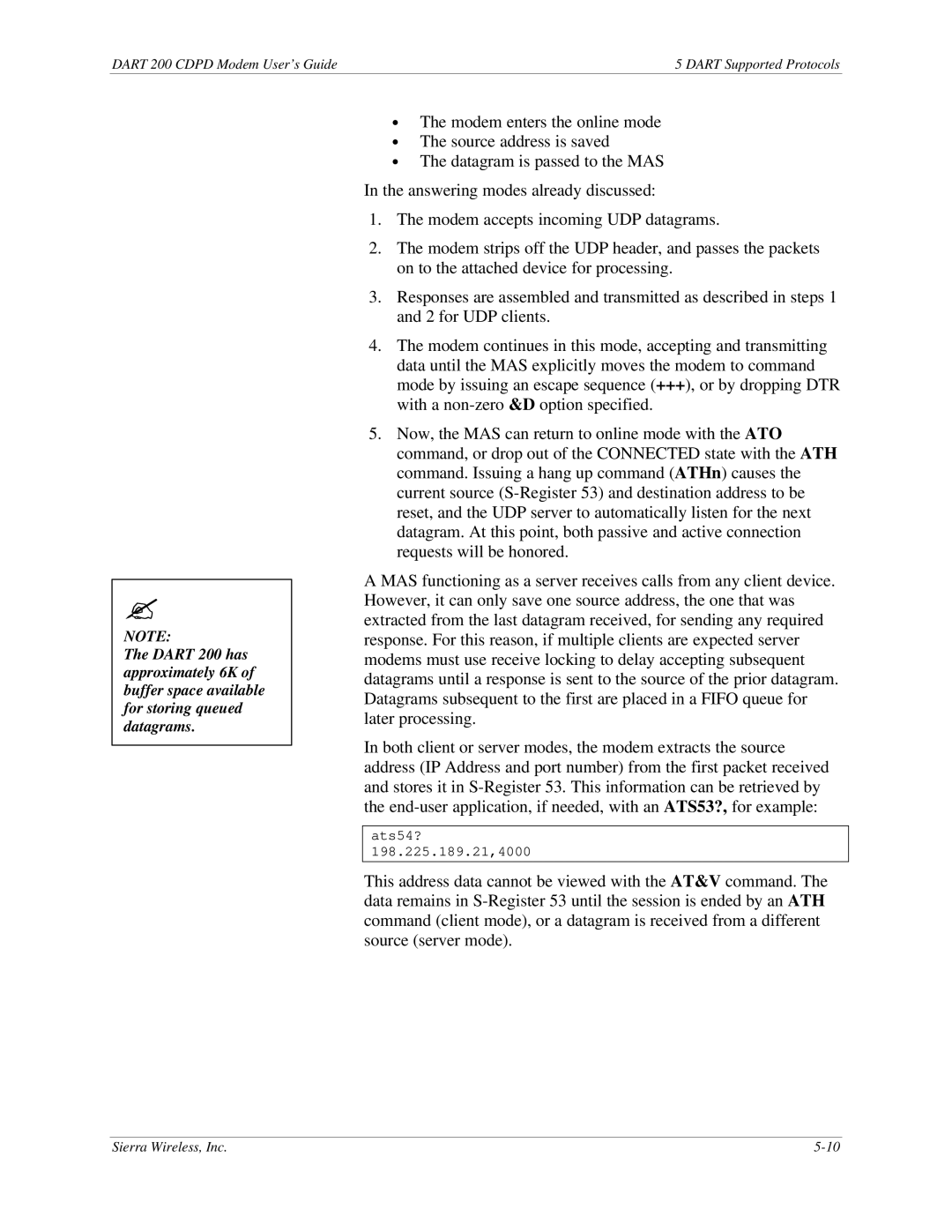
DART 200 CDPD Modem User’s Guide | 5 DART Supported Protocols |
?
NOTE:
The DART 200 has approximately 6K of buffer space available for storing queued datagrams.
∙The modem enters the online mode
∙The source address is saved
∙The datagram is passed to the MAS
In the answering modes already discussed:
1.The modem accepts incoming UDP datagrams.
2.The modem strips off the UDP header, and passes the packets on to the attached device for processing.
3.Responses are assembled and transmitted as described in steps 1 and 2 for UDP clients.
4.The modem continues in this mode, accepting and transmitting data until the MAS explicitly moves the modem to command mode by issuing an escape sequence (+++), or by dropping DTR with a
5.Now, the MAS can return to online mode with the ATO command, or drop out of the CONNECTED state with the ATH command. Issuing a hang up command (ATHn) causes the current source
A MAS functioning as a server receives calls from any client device. However, it can only save one source address, the one that was extracted from the last datagram received, for sending any required response. For this reason, if multiple clients are expected server modems must use receive locking to delay accepting subsequent datagrams until a response is sent to the source of the prior datagram. Datagrams subsequent to the first are placed in a FIFO queue for later processing.
In both client or server modes, the modem extracts the source address (IP Address and port number) from the first packet received and stores it in
ats54?
198.225.189.21,4000
This address data cannot be viewed with the AT&V command. The data remains in
Sierra Wireless, Inc. |
